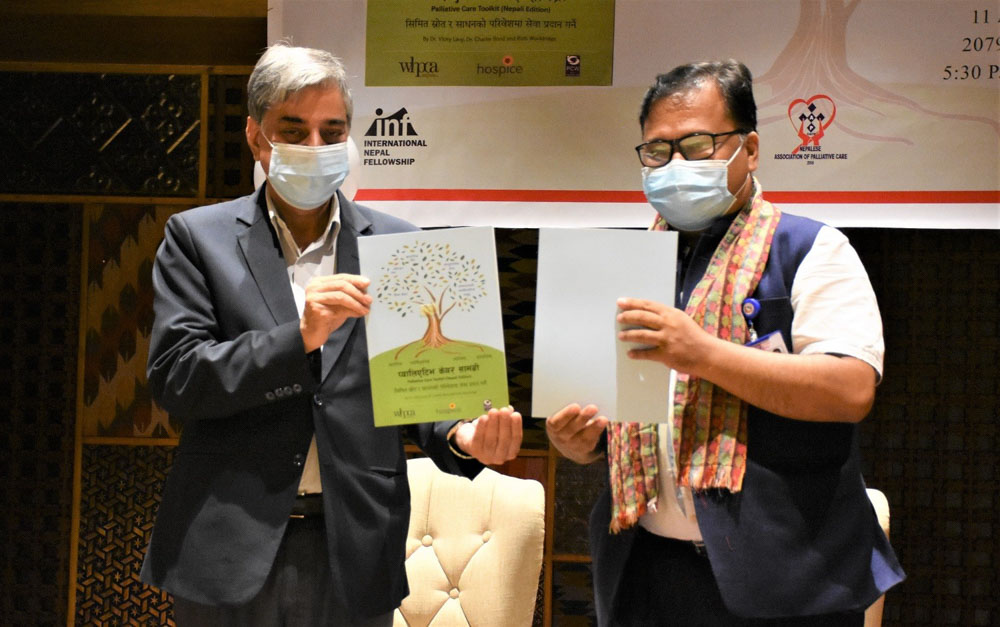INF Nepal launched the first-ever Palliative Care Toolkit (Nepali Edition) on 11th August 2022 in Kathmandu.
Dr Dipendra Raman Singh, Director General of the Health Service Department of the Ministry of Health and Population, and Prof. Bishnu Dutta Paudel, President of Nepalese Association for Palliative Care (NAPCare), jointly unveiled the toolkit during the event.
The event’s chief guest, Dr Dipendra Raman Singh, mentioned the release of the Palliative Toolkit (Nepali Edition) as a momentous day for Nepal’s healthcare system. He said, “The Health Service Department is committed to making the toolkit available among local health institutions and health workers.”
Prof. Dr Bishnu Dutta Paudel shared the development of palliative care in Nepal and how its understanding has evolved from hospice care to symptom management of chronic, incurable diseases.
Manju BK, INF Nepal Green Pastures Hospital (GPH)’s Palliative Care Clinical Coordinator, shared about the palliative care services at GPH. She highlighted that GPH in Pokhara is the first to offer this service for long-term patients with illnesses other than cancer through fourteen bedded Palliative Care integrated with Chronic Disease (PCCD) unit. She also presented an overview of the Toolkit translation project.
Mr Stephen R. Connor, Executive Director of World Hospice and Palliative Care Alliance (WHPCA), along with Mrs Ruth Wooldridge, one of the original authors, sent video messages, congratulating the team on the release of the Nepali version of the toolkit and wishing all the best for its effective utilisation in the Nepalese health sector.
The Nepal National Strategy for Palliative Care (2017) emphasises palliative care is available to people near them, even in remote rural areas of the country. Palliative care is a relatively new concept in Nepal. Health workers, particularly mid-level ones, need capacity building to help them identify palliative patients and provide them with care as they are the backbone of the rural health care system providing the patients and their families with primary health care.
In this endeavour to make palliative care available within the community by training health workers and community members, the internationally accredited Palliative Care Toolkit developed by Hospice UK has been contextually adapted and translated into Nepali through the joint effort of INF Nepal, Gurkha Welfare Trust, and NAPCare.
Palliative Care Toolkit has been translated into ten different languages, including Nepali. This toolkit aims to empower healthcare workers and encourage more caring societies to provide family support to the palliative patient contributing to the achievement of the Nepal National Strategy for Palliative Care (2017).
A total of 38 people representing the government agencies (Health Service Department, Curative Service Division, Nursing and Social Security Division, NCD and Mental Health Section, Epidemiology and Disease Control Division), NAPCare, Nepal Health Professional Council, Hospice Nepal, Patan Hospital, Bhaktapur Cancer Hospital, Bharatpur Cancer Hospital, HDCS and Thankot Hospice Centre attended the toolkit unveiling event.



